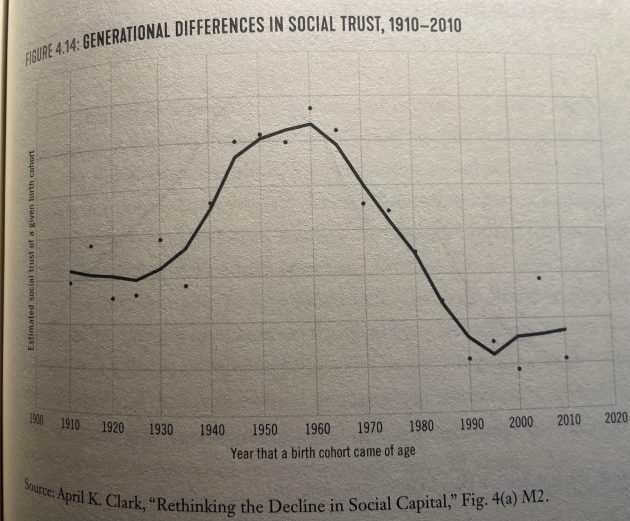As the sober community flourishes, we are seeing more and more sober curious folks and fewer people attending 12 step meetings. We are seeing people take breaks from alcohol just because, and not feel the pressure of defining their...
As the sober community flourishes, we are seeing more and more sober curious folks and fewer people attending 12 step meetings. We are seeing people take breaks from alcohol just because, and not feel the pressure of defining their relationship with alcohol. Frankly, I am shocked and impressed by this shift. If you told me 9 years ago when I first got sober that this would happen I would have said, ďno way.Ē
See, back when I got sober there was only one way. Well, there was only one way that anyone ever talked about, and that was Alcoholics Anonymous. Attend meetings, get a sponsor, read the big book, and surrender to a higher power. Not only that but whenever sobriety was talked about it was assumed you were in a 12-step program because those two things were synonymous with each other.†
If youíve heard me tell my story before or read any of my previous blogs, you probably know that I didnít go to AA right away. I decided to try it out a year and a half into my sobriety and then attended for about two years before I stopped going. Before attending a 12-step program I didnít call myself an alcoholic. That label just never resonated for me and I didnít like the way it felt. I had made it over a year without drinking without a sponsor and without identifying as an alcoholic.†
Those things changed when I stepped foot into AA. Like everyone else who introduces themselves, I said, ďmy name is Kelly and Iím an alcoholic.Ē It felt yucky the first few times, but I quickly adapted and put it behind me. It felt good to be a part of a community, even though the God-language in the literature ruffled my feathers a bit and the antiquated stories in the Big Book didnít always make sense to me, I got a sponsor and did the steps. A lot of what I heard in the rooms was that these steps and practices were necessary in order to get and stay sober, but my personal experience had been different than that from the beginning. I got and stayed sober on my own for over a year and so I knew, that this theory wasnít necessarily true for me. I always received a lot of confusing questions and stares about my sobriety prior to AA. ďYou must have been white-knuckling it!Ē ďHow did you do it??!!Ē I didnít really understand the term white-knuckling, but I didnít feel like thatís what I had been doing, but the more I heard about it inside the rooms, the more I thought that maybe it was what I experienced during my first year of sobriety. If everyone was saying it, maybe it was true?
As time went on I made the decision to stop attending AA so frequently. I made friends my own age in my town who were not sober and started hanging out with them on the weekends. I had less and less patience with reading the same Big Book stories at meetings or being told to ďpray about it,Ē when I had an issue. Eventually, I stopped attending altogether.
The internet is what always made me feel seen and heard in my sobriety, whether I was attending AA or not. I was able to explore what else was out there and I didnít have to label myself, even though if you read back far enough in my writing youíll see that I did for a while.†
As time went on I clung tightly to the words sober and sobriety. I stopped using the words addict, alcoholic, and alcoholism after attending some recovery-related trainings and after data came out that proves language matters in the addiction recovery realm. I started using the phrases recovery and substance use disorder.
When I joined This Naked Mind in 2019 as Director of Marketing, I began to understand that an entire community existed that rejected the traditional concept of sobriety, not just the labels but the disease model and everything else I had learned about addiction early on. Generally speaking, people who are in the This Naked Mind and Alcohol Experiment communities refer to themselves as alcohol-free. Most do not resonate with the term alcoholic and many do not even believe they have a substance use disorder or addiction. Itís also a principal motivation behind all of Annie Graceís programs to widen the net of inclusivity for people who wish to change their relationship with alcohol. It was the first time I saw people changing for the better in a group, while also not using labels or surrendering to a higher power.†
It aligned with my thoughts on harm reduction. I had always heard harm reduction practices were when drug users had access to supervised injection sites, clean needles, testing strips, and other ways to keep themselves safe while they used until they were at the point where they wanted to get help. It made sense to me, but when it came to alcohol I always heard the opposite. You must hit rock bottom if you want to get well. You must be an alcoholic if you are to surrender, stop drinking, and become sober. There was no in-between. In fact, I often heard that moderation was a delusion of the alcoholic and that addiction was a chronic illness that would need to be taken care of for the rest of your life. Plus the fact that having an alcohol problem is extremely stigmatized despite alcohol being a very normalized addictive substance that anyone can become addicted to. Add in the many views from inside the recovery community that judge people for the way they recover, such as if they donít go to 12-step they arenít sober, if they are on medication to help with their recovery they arenít sober, or if they drink non-alcoholic beverages itís a slippery slope. This is when inclusivity is really lost.
I remember frequently drinking non-alcoholic beer in Mexico during my first year sober. I never knew it would be considered controversial until I later entered AA and began writing about my sobriety on the internet. That was when I was told that NA drinks can be triggering, that they are a slippery slope for ďalcoholics,Ē and that some still contain a small percentage of alcohol and those of us who are ďalcoholics,Ē could find and drink enough of those to get drunk. I did not have this experience with NA beer, but the people telling me this stuff couldnít have been more sure about what they were saying.
When I think about my values I believe all people deserve help with their alcohol issues, even if they donít identify as being an alcoholic and even if they donít identify as having a lifelong ďdisease.Ē. I believe when we continue with the belief that addiction is a disease and there are only a few ways to recover, we leave out a huge population of people who want and need to quit drinking and whose lives would be better off without alcohol.†
I used to be put off by people who were seeking to moderate their alcohol use. When I first became a coach in 2018 I made the decision that I would not work with people who only wanted to moderate or cut back because I didnít think that was possible, or beneficial to them. In 2022, I can honestly say I have completely changed my views on this. I believe any person who wants to cut back or take a break from alcohol has a valid place in the sober community, regardless of any labels they choose or choose not to use. I believe my job as a coach is to help them achieve their goal, whatever that may be.†
Iíve stopped trying to categorize people and myself. I donít resonate with the word alcoholic or having the disease of addiction. I believe trying to fit ourselves in these boxes has kept many people drinking for much longer than necessary because they donít fit the traditional standards of what society tells us an alcoholic is. Myself included.
I call myself sober because thatís what feels good and I look forward to helping others navigate this messy world of labels and finding what feels right and constructive to them. When we open our eyes as a society to the harms of alcohol, we understand that any person can benefit from sobriety. Letís pave the way to make it sustainable and inclusive for all.†
I am proud of the changes Iíve made and the progress Iíve gone through. I welcome more growth along the way.














